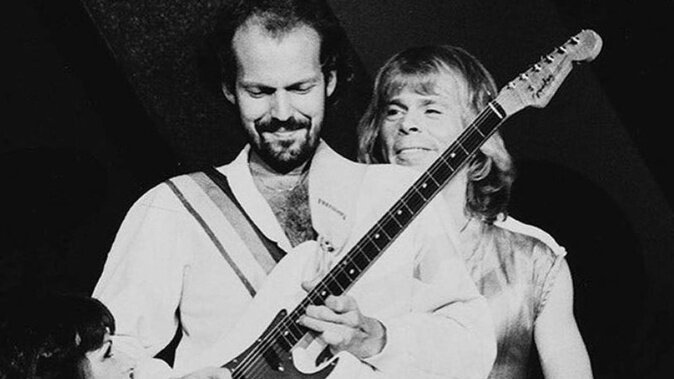
On April 6, 1974, Swedish pop band ABBA won the 19th Eurovision Song Contest, held in the English seaside town of Brighton. Nobody expected the five strangely dressed Swedes with a song about Napoleon to win.
The bookies had put their money on British-Australian singer Olivia Newton-John. She was already a star at the time and the clear favorite. Singer Gigliola Cinquetti, who had already lifted the trophy for Italy in 1964, was also given good odds.
But in 1974, the stars aligned for them. At the Melodifestivalen, as the Swedish preliminary round is called, the quartet won with “Waterloo” and was allowed to travel to England to represent Sweden. The rest is music history.
Thirty-two countries participated in the event, at that time still known as the Grand Prix Eurovision de la Chanson. When ABBA’s performance was announced as the eighth of a total of 17 that evening, a man dressed as Napoleon walked out on stage. His name was Sven-Olof Walldoff, and he was to conduct the song that would make ABBA famous. He was followed by Benny Andersson, Bjorn Ulvaeus, Agnetha Faltskog and Anni-Frid Lyngstad — not in historical costume, but in glittery clothes, velvet pants and dizzyingly high platform shoes.
Their song was written by the band’s manager, Stig Anderson. He hummed it to Ulvaeus and Andersson over the phone and they composed the music for it in the isolation of the island of Viggso. It’s about love, and surrendering to it the way the French commander Napoleon capitulated at the Battle of Waterloo in 1815.
In addition to this song, the band also considered the track “Hasta Manana” to be a promising Eurovision entry. But Anderson was against it. “Just leave it to me to decide which song we take,” he allegedly told Ulvaeus and Andersson. “If it goes wrong, you can kill me afterwards.”
There was no murder. On the contrary: ABBA won the competition with 24 points, ahead of Italy with 18.

Leave a Reply